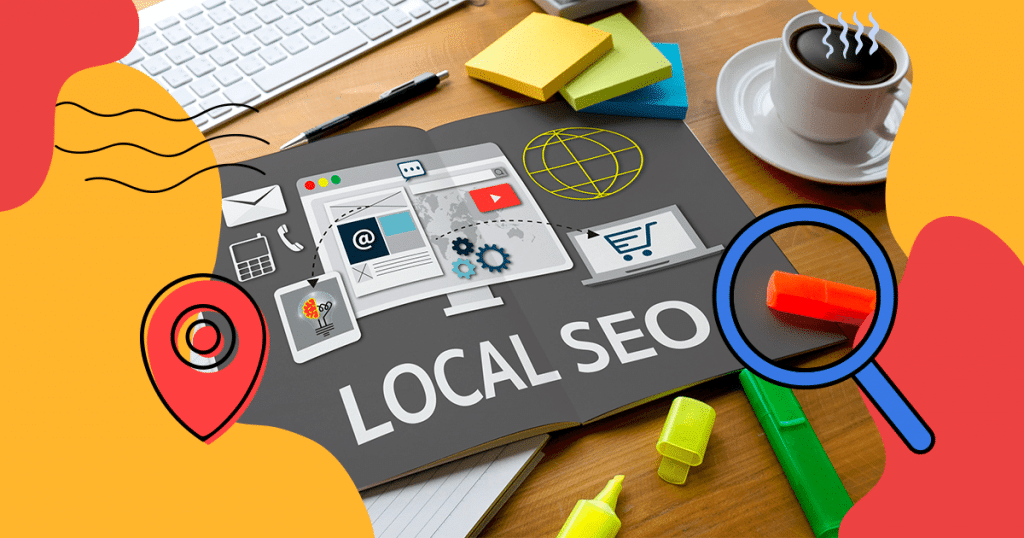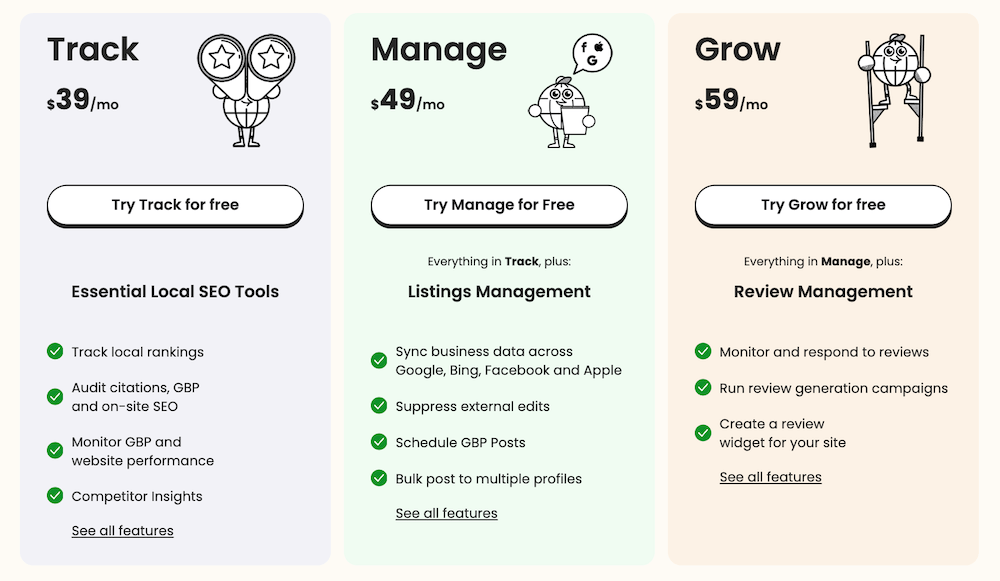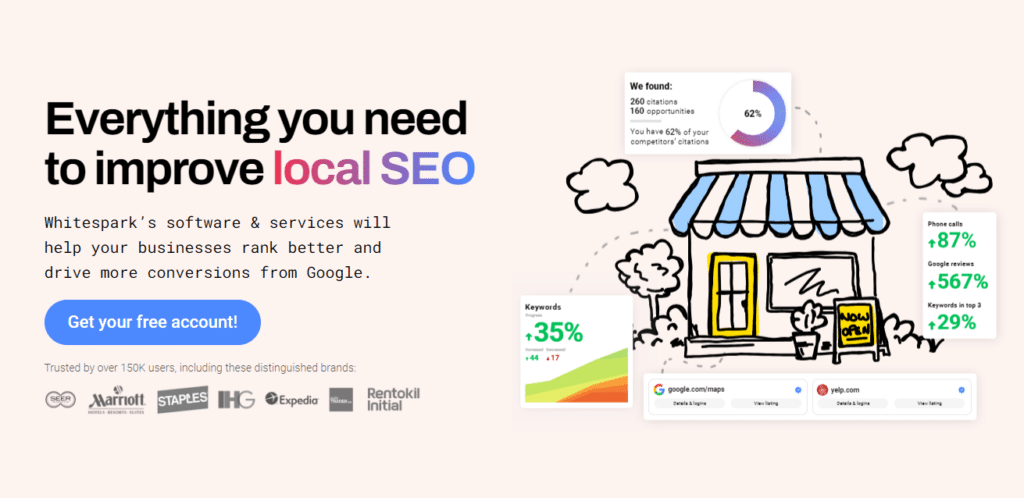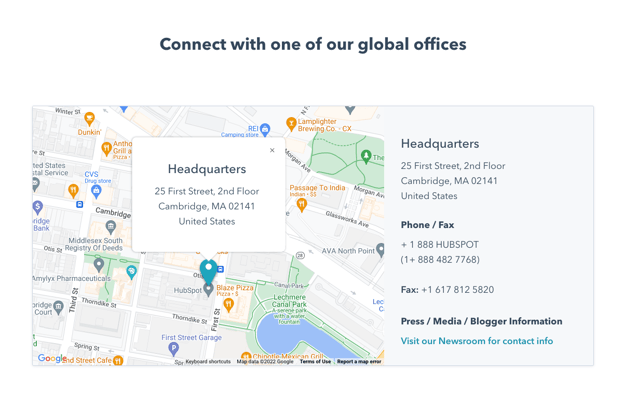Discover how the top software solutions can revolutionize your local SEO strategy and drive more traffic to your business.

Image courtesy of via DALL-E 3
Table of Contents
Introduction to Local SEO
Local SEO, or local search engine optimization, is a crucial strategy for businesses that want to attract customers in a specific geographic area. This type of SEO focuses on optimizing a business’s online presence to increase its visibility in local search results. For small businesses, in particular, having a strong local SEO strategy can be a game-changer in reaching potential customers in their vicinity.
Software solutions play a key role in improving Local SEO for businesses. These tools help businesses manage their online presence, optimize their websites, and track their performance in local search results. By leveraging the right software, businesses can enhance their visibility, attract more local customers, and ultimately grow their revenue.
What is Local SEO?
Local SEO is all about making sure that when someone in your neighborhood searches for a product or service you offer, your business shows up in the search results. It’s like putting up a sign that says, “Hey, I’m right here, come check me out!” By using specific keywords and location details on your website, you can help search engines like Google connect you with potential customers nearby.
Why Do Local Businesses Need Local SEO?
Imagine you’re looking for a pizza place to satisfy your cravings on a Friday night. You pull out your phone and search for “best pizza near me.” If a local pizza shop has good Local SEO, it’s more likely to show up at the top of your search results. That means more people will discover and visit that pizza place, helping the business thrive in the local market.
How Software Helps Improve Local SEO
Software solutions designed for Local SEO can help businesses in many ways. They can assist in finding the best local keywords to target, managing business listings on directories like Google My Business, and analyzing the performance of their SEO efforts. With the right tools, businesses can effectively navigate the world of Local SEO and stand out in their local community.
Keyword Research Tools
Keyword research is like finding the secret code that helps businesses unlock the door to more customers. When people search online for things like “best pizza near me” or “dog groomer in my area,” businesses that use the right keywords are more likely to show up at the top of the search results. Choosing the right keywords is crucial for local businesses to reach their target audience and attract more visitors to their website or store.
Top Keyword Research Tools
There are handy tools that can help businesses find the best keywords to improve their local SEO game. Tools like Google Keyword Planner, Moz Keyword Explorer, and SEMrush are like treasure maps that guide businesses to discover the most searched for keywords in their area. Google Keyword Planner tells you how many people are searching for specific words or phrases, while Moz Keyword Explorer helps you find keywords your competitors are using. SEMrush is like a secret weapon that provides valuable insights into keywords that can boost your business in local searches.
Local Listing Management Tools
Local listings are online entries that contain essential information about a business, such as its name, address, phone number, and website. These listings appear on various platforms like Google Maps, Yelp, and Facebook, helping potential customers find and connect with local businesses.

Image courtesy of rockcontent.com via Google Images
Popular Listing Management Tools
Keeping local listings accurate and consistent across multiple platforms is crucial for a business’s online visibility. Fortunately, there are tools like Yext, BrightLocal, and Moz Local that can streamline the management process.
Yext is a comprehensive tool that allows businesses to update their information on various directories from a single platform. It ensures that listings are consistent and up-to-date, improving a business’s local search ranking.
BrightLocal is another excellent tool that helps businesses monitor and manage their local listings effectively. It provides insights and analytics to track the performance of different listings and identify areas for improvement.
Additionally, Moz Local offers citation management and distribution services to ensure that a business’s information is consistent across the web. It also helps businesses monitor their online reputation and respond to customer reviews effectively.
Review Management Software
Customer reviews play a crucial role in the world of local SEO. Imagine you are looking for the best pizza place in your neighborhood. Are you more likely to visit a restaurant with five stars and glowing reviews, or one with a lower rating and negative feedback? Reviews help potential customers make informed decisions about where to spend their money.
Best Review Management Tools
When it comes to managing customer reviews, businesses can turn to specialized software tools to streamline the process. Platforms like Podium, BirdEye, and ReviewTrackers offer features that allow businesses to monitor, respond to, and leverage customer feedback across various review sites. These tools help businesses maintain a positive online reputation and address any negative reviews promptly, showing potential customers that their satisfaction is a top priority.
Local Rank Tracking
Tracking local rankings is essential for businesses to understand how they are performing in local search results. By monitoring where they stand for specific keywords in their target area, businesses can make informed decisions to improve their local SEO strategies.

Image courtesy of www.99signals.com via Google Images
Why Track Local Rankings?
Knowing where a business stands in local search results is crucial for several reasons. It helps businesses assess the effectiveness of their SEO efforts and understand which keywords are driving traffic to their website. By tracking local rankings, businesses can identify areas for improvement and optimize their content to rank higher in local searches.
Leading Rank Tracking Tools
There are several tools available to help businesses track their local search performance and gain valuable SEO insights. Some of the leading rank tracking tools include:
- Whitespark: Whitespark offers local rank tracking services to help businesses monitor their local search performance and track their progress over time. With detailed reports and insights, businesses can make data-driven decisions to improve their local SEO strategies.
- BrightLocal: BrightLocal provides local rank tracking services along with various other SEO tools to help businesses improve their online visibility. Their platform offers customizable reports and actionable insights to enhance local search performance.
- SEMrush: SEMrush is a comprehensive SEO tool that includes local rank tracking features. Businesses can track their keyword rankings in local search results, analyze competitor performance, and identify new opportunities to improve their local SEO strategies.
Website Optimization Software
Website optimization is the process of improving different elements on a website to enhance its performance in search engine results. This includes on-page SEO, which involves optimizing content, meta tags, and images, and technical SEO, which focuses on factors like site speed and mobile responsiveness.
Top Website Optimization Tools
When it comes to optimizing your website for better local SEO, there are several tools that can make the job easier:
- Yoast SEO: Yoast is a popular WordPress plugin that helps you optimize your website content for specific keywords, improve your website’s readability, and ensure your site has proper SEO elements in place.
- Screaming Frog: This tool crawls your website to identify any technical issues that might be impacting your SEO performance. It provides valuable insights into your site structure, broken links, and meta data.
- Ahrefs: Ahrefs is a comprehensive SEO tool that offers features for keyword research, backlink analysis, and site auditing. It can help you identify opportunities to improve your website’s visibility in search results.
Social Media Management Tools
Social media plays a crucial role in boosting local SEO for businesses. When businesses engage with their local community on platforms like Facebook, Instagram, and Twitter, they not only increase brand awareness but also drive traffic to their websites. Social media activity, such as sharing local events, promotions, and customer testimonials, can enhance a business’s local presence and credibility.

Image courtesy of rockcontent.com via Google Images
Top Social Media Management Tools
Managing multiple social media accounts can be challenging, but with the right tools, businesses can streamline their social media efforts. Here are some top social media management tools:
Hootsuite: Hootsuite allows businesses to schedule posts, track analytics, and engage with followers across multiple social media platforms from one dashboard. It also offers tools for social listening and monitoring mentions.
Buffer: Buffer is another popular social media management tool that helps businesses schedule posts, analyze performance, and collaborate with team members. It also provides insights into audience engagement and the best times to post.
Sprout Social: Sprout Social is a comprehensive social media management tool that offers features for scheduling posts, monitoring conversations, analyzing performance, and measuring ROI. It helps businesses create better social strategies and improve engagement with their audience.
Analytics and Reporting Tools
In the world of Local SEO, it’s crucial for businesses to not only implement strategies but also track and analyze their effectiveness. That’s where analytics and reporting tools come into play. These tools help businesses monitor their SEO performance and make informed decisions to improve their local search visibility.
Why Analytics Are Important
Analytics are like a detective for your website. They help you uncover valuable insights about your online presence, such as how many people visit your site, where they come from, and what actions they take. By analyzing this data, businesses can understand what’s working well and what needs improvement in their Local SEO strategy.
Leading Analytics and Reporting Tools
1. Google Analytics: This powerful tool provides in-depth analysis of website traffic, user behavior, and conversion rates. It helps businesses track key metrics and understand how users interact with their site.
2. Data Studio: Data Studio allows businesses to create customizable reports and dashboards to visualize their SEO performance data. It’s a user-friendly tool that enables easy data interpretation.
3. Moz Pro: Moz Pro offers a suite of SEO tools that include reporting features to track keyword rankings, website performance, and competitive analysis. It helps businesses stay on top of their Local SEO game.
Conclusion
Local SEO is a vital aspect of promoting local businesses online and reaching potential customers in the neighborhood. By optimizing your online presence for local searches, you can increase visibility, attract more foot traffic, and grow your customer base. Utilizing the right software solutions can significantly enhance your Local SEO efforts and give you a competitive edge.

Image courtesy of blog.hubspot.com via Google Images
In this article, we discussed the importance of Local SEO and how software tools play a crucial role in improving local search rankings. From keyword research tools to review management software, each tool serves a specific purpose in helping businesses establish a strong online presence within their community.
Remember, finding the right keywords, managing local listings, handling customer reviews, tracking rankings, optimizing your website, engaging on social media, and analyzing performance are all key components of a successful Local SEO strategy. By incorporating these tools and strategies into your marketing efforts, you can see tangible growth in your online visibility and customer engagement.
Whether you’re a small business owner or a digital marketing enthusiast, embracing Local SEO and leveraging the power of software solutions can make a significant difference in reaching your target audience and driving business success. So, take the time to explore these tools, implement best practices, and watch your local business thrive in the digital landscape!
Want to turn these SEO insights into real results? Seorocket is an all-in-one AI SEO solution that uses the power of AI to analyze your competition and craft high-ranking content.
Seorocket offers a suite of powerful tools, including a Keyword Researcher to find the most profitable keywords, an AI Writer to generate unique and Google-friendly content, and an Automatic Publisher to schedule and publish your content directly to your website. Plus, you’ll get real-time performance tracking so you can see exactly what’s working and make adjustments as needed.
Stop just reading about SEO – take action with Seorocket and skyrocket your search rankings today. Sign up for a free trial and see the difference Seorocket can make for your website!
Frequently Asked Questions (FAQs)
What is the best local SEO tool for beginners?
For beginners looking to improve their local SEO, a great tool to start with is Google My Business. It’s easy to use and allows you to manage your business information on Google Search and Maps. By setting up and optimizing your Google My Business profile, you can increase your visibility in local search results.
How does social media affect Local SEO?
Social media plays a crucial role in boosting local SEO. When you engage with your audience on platforms like Facebook, Twitter, and Instagram, you can drive traffic to your website and increase visibility in local search results. Sharing content, interacting with customers, and maintaining an active social presence can positively impact your local SEO rankings.
Can I manage Local SEO on my own?
While it’s possible to manage local SEO on your own, it can be complex and time-consuming. Businesses that have the resources and expertise to handle tasks like keyword research, content optimization, and link building may be able to successfully manage their local SEO efforts internally. However, many businesses opt to enlist the help of professional SEO agencies or consultants to ensure their local SEO strategies are effective and yield results.







